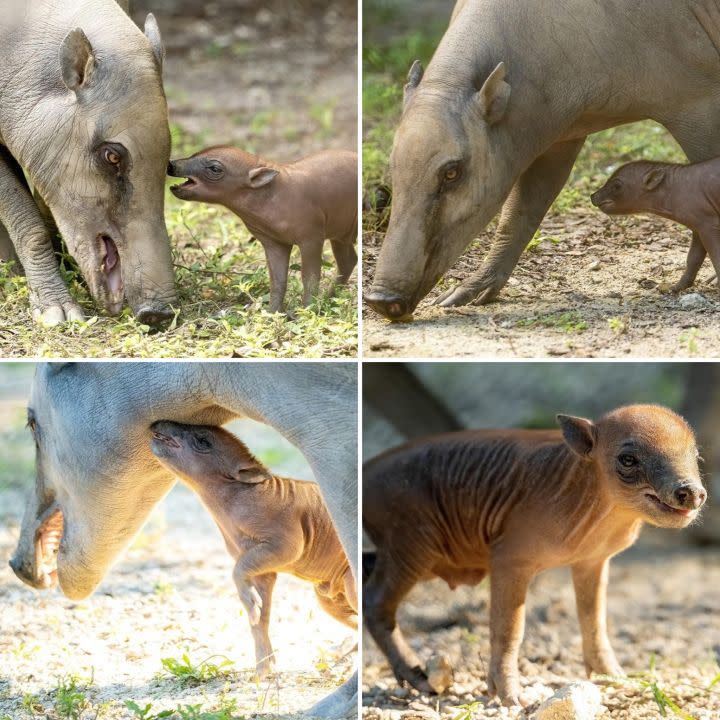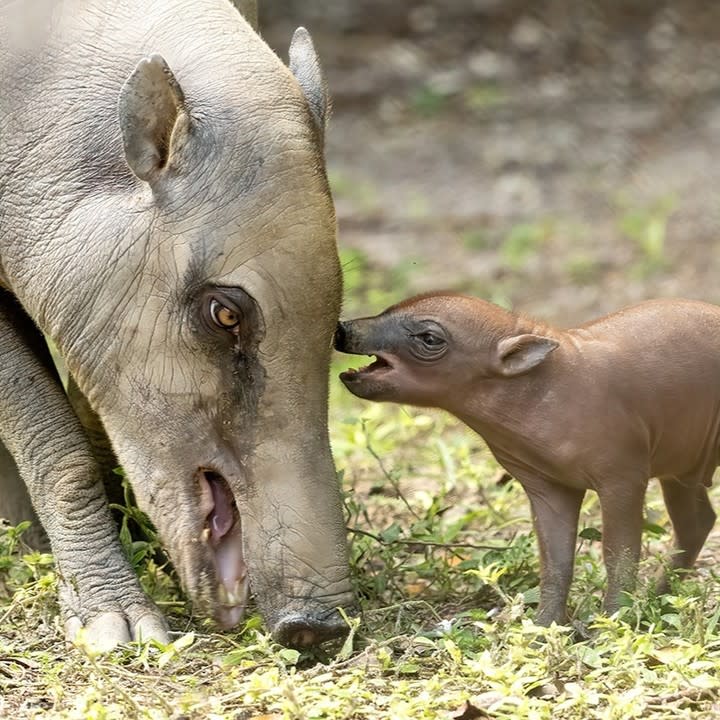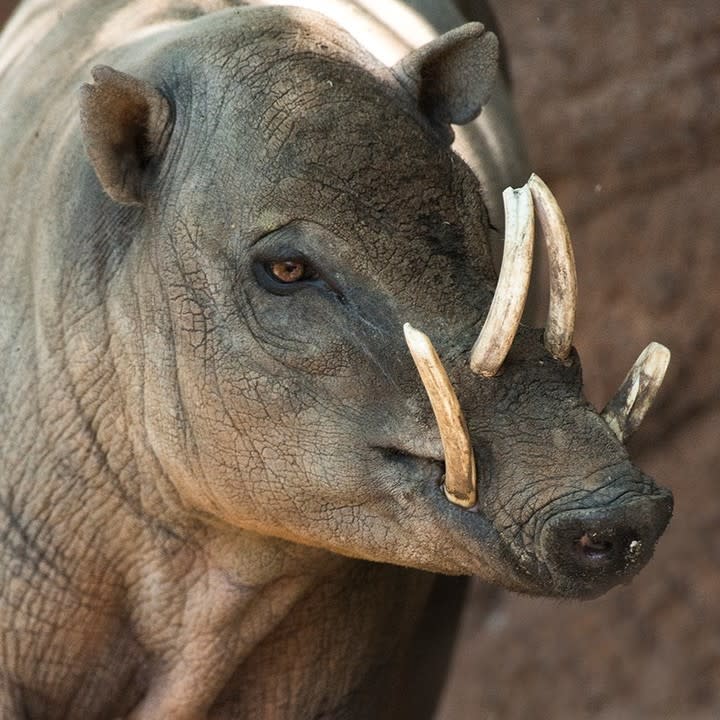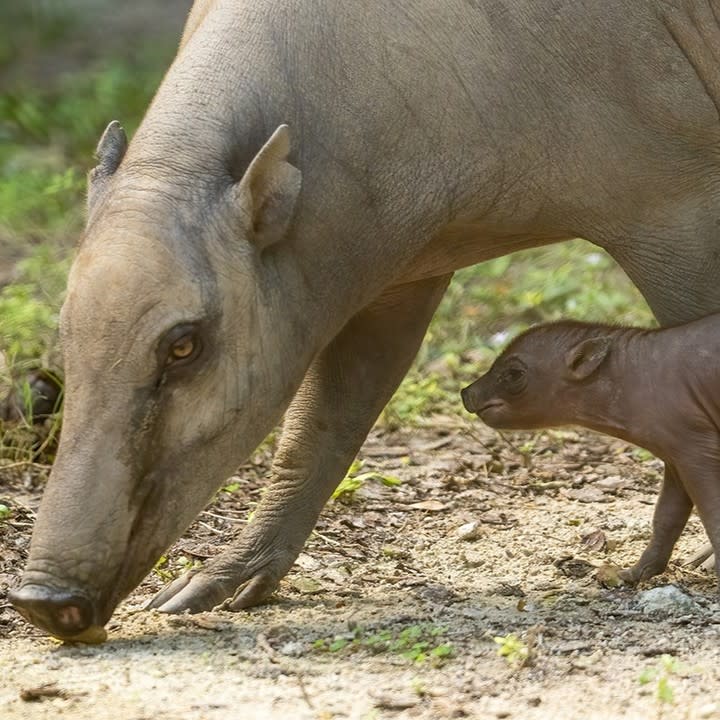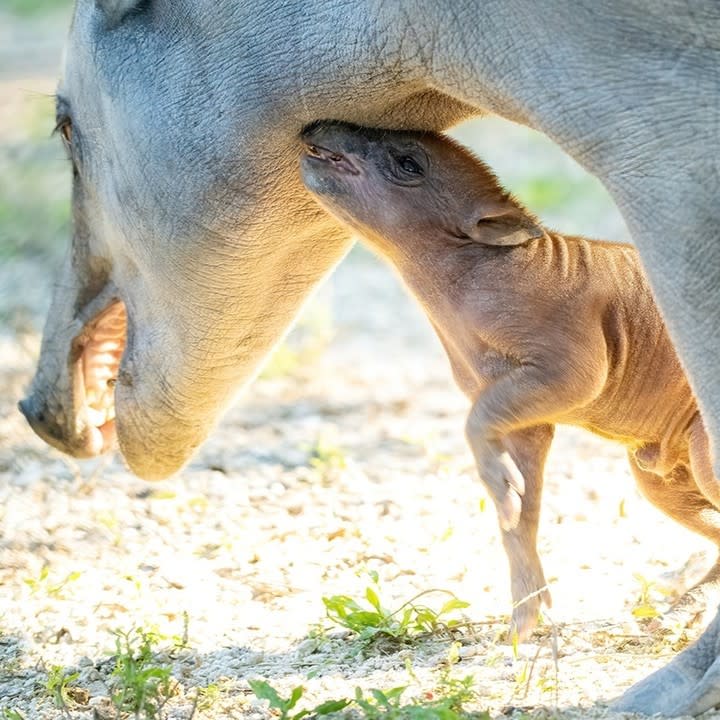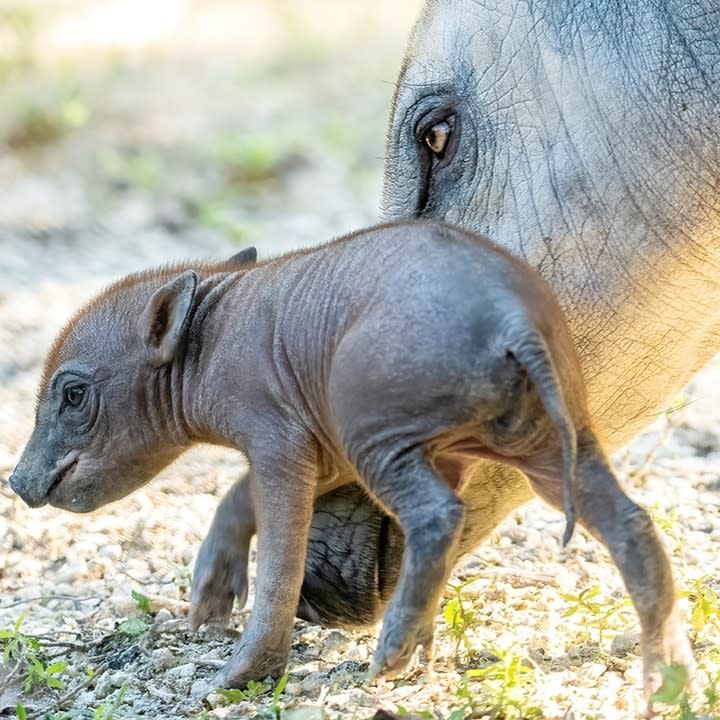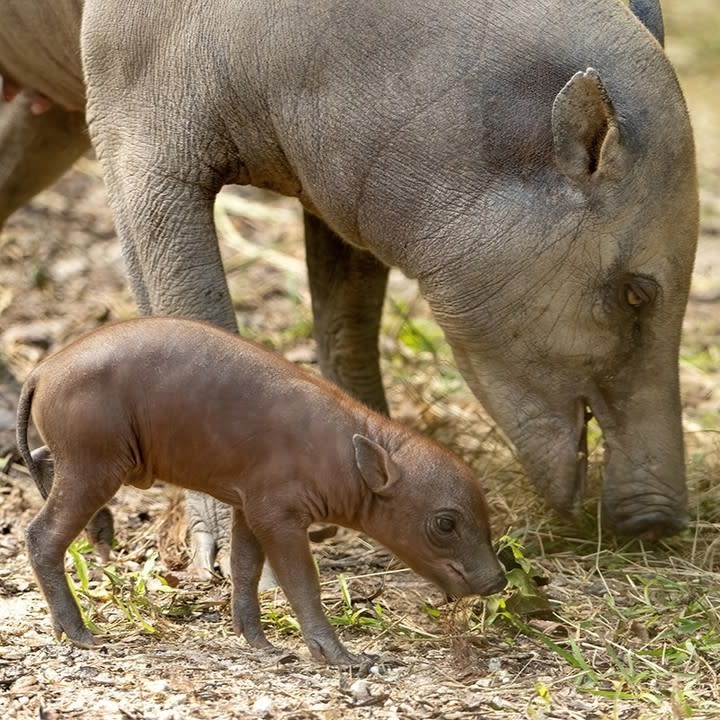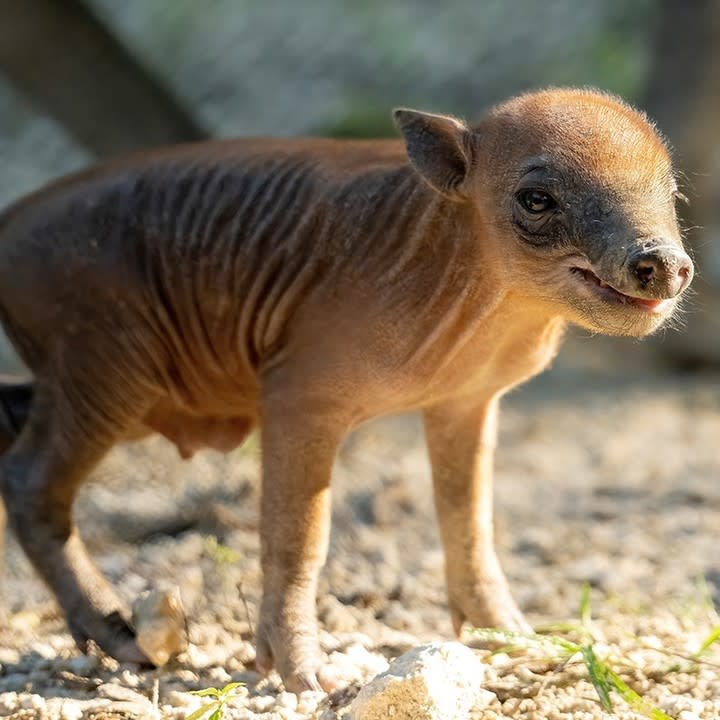PHOTOS: Zoo Miami welcomes endangered babirusa, celebrates first successful birth of species

Related video: Zoo Tampa celebrated the birth of a Southern white rhino in October.
TAMPA, Fla. (WFLA) — Zoo Miami welcomed a new endangered babirusa on Dec. 15, making this the first successful birth of the species in the zoo’s history.
WATCH: Cat saves dog from attacking coyotes
The newborn is the first baby for both the parents, the 4-year-old mom, Maggie from St. Louis Zoo, and the 4-year-old dad, Harry from Audubon Zoo in New Orleans.
According to Zoo Miami, the baby’s gender is still unknown, as the baby remains secluded with the mom to allow it to become accustomed to its habitat.
The name “Babirusa,” meaning “pig deer” is believed to come from the bizarre-looking appearance of the males, whose antler-looking tusks grow on top of their heads. The upper tusks will grow up through the face and occasionally curl back into its head, the zoo said.
Credit: Ron Magill/AMAZING ANIMALS+ /TMX Credit: Ron Magill/AMAZING ANIMALS+ /TMX Credit: Ron Magill/AMAZING ANIMALS+ /TMX Credit: Ron Magill/AMAZING ANIMALS+ /TMX Credit: Ron Magill/AMAZING ANIMALS+ /TMX Credit: Ron Magill/AMAZING ANIMALS+ /TMX Credit: Ron Magill/AMAZING ANIMALS+ /TMX Credit: Ron Magill/AMAZING ANIMALS+ /TMX
Babirusa’s can be found in the Indonesian swamps and rainforests. They have a lifespan of around 10 years but can live up to 20 years in human care. Their diet consists of fruits, roots, invertebrates, small mammals, and on occasion, their young.
The zoo also said the males will fight it out for territory by standing on their hind legs and punching with their front legs. Their biggest threats are habitat loss and hunting for food.
For the latest news, weather, sports, and streaming video, head to WFLA.
